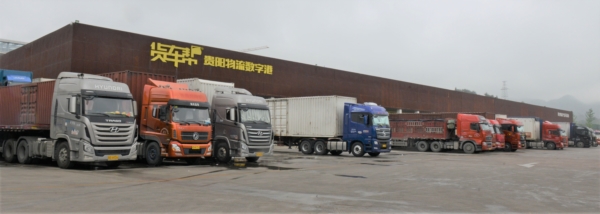Uber-like app boosts logistics development in Guizhou


Manbang Group, China's largest Uber-like freight service provider, has a logistics port in Guiyang. [Photo/gog.cn]
In a logistics port in Guiyang Economic and Technological Development Zone, southwest China's Guizhou province, big data is changing the logistics industry and providing convenience to truck drivers.
According to data, over 85 percent of large trucks are run by self-employed drivers, while the no-load rate of 7 million large and medium-size trucks has reached 40 percent.
Huochebang, an Uber-like app developed by Manbang Group, adopts big data to allow truck drivers find cargo sources.
With the help of the app, China's largest online logistics information platform was built and millions of drivers benefit from it. In 2017, it helped to save fuel worth more than 86 billion yuan ($12.58 billion), and reduced carbon emissions by 46 million tons.
Hu Yiqiang, a self-employed driver from Zunyi, Guizhou, is one of the drivers that has benefited from the app. Hu has more than 10 years of working experience in logistics and remembered the days that self-employed drivers needed to find cargos by themselves, which sometimes took a week to do.
Through the app, things have changed. To date, 6.5 million drivers and 1.5 million cargo owners have registered on Huochebang. The logistics information on the app covers the whole country.
The app is only an example of the big data development in Guizhou. Over the past few years, Guizhou has built China's first blockchain public platform, the first government open data demonstrative city, the first big data cluster, the first big data exchange, and many other firsts, which has made the province the leader in big data development.
MOST POPULAR
- 1 Guangdong remains top foreign investment destination in China
- 2 Boao establishes zero-carbon zone in pursuit of sustainable development
- 3 Countermeasures against foreign sanctions empowered
- 4 Things to know about Boao Forum for Asia Annual Conference 2025
- 5 China introduces new measures to facilitate travel, residency for HK, Macao, Taiwan residents on mainland







